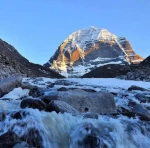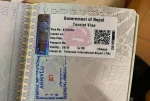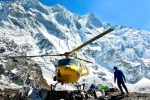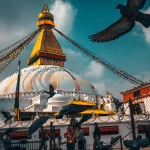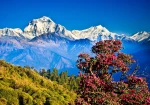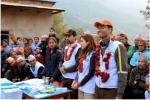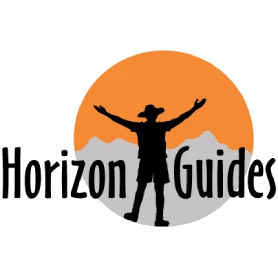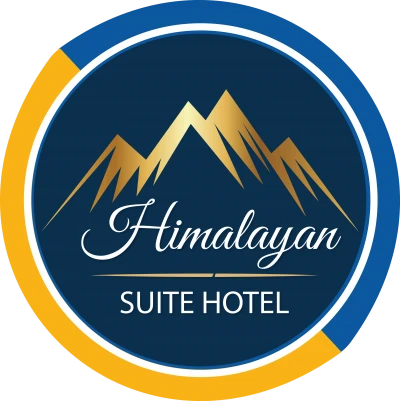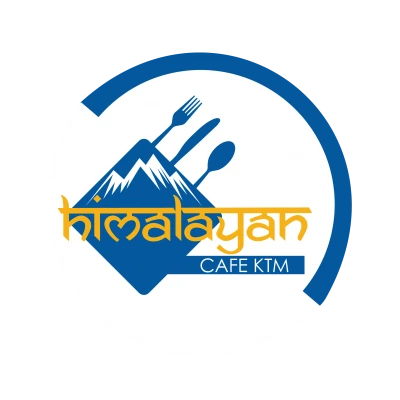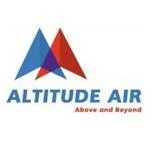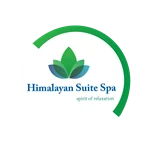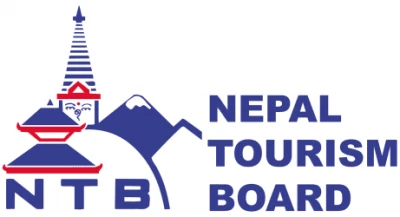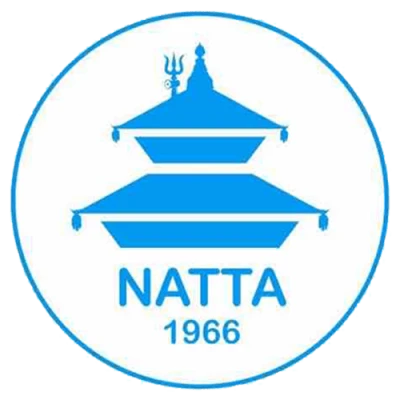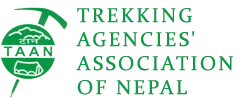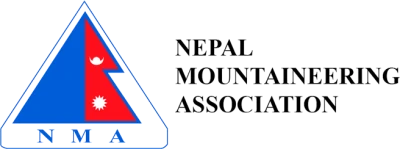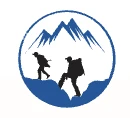For anyone looking for incredibly kind people, a flourishing culture, spirituality, and a taste of a simpler way of life, Nepal is the place to go. India and China share a border with Nepal, a landlocked nation. The birthplace of Buddhism, Gautam Buddha, is another name.
Capital City: Kathmandu
Population: 29.14 million (2022)
Official Language: Nepali
Currency: Nepalese Rupee (NPR)
Research is something you should always undertake before traveling to any nation. And it is my top advice for visiting Nepal. Although I'm sure you already know this, sometimes we need a gentle (kind of) reminder. Nepal, meanwhile, can be equally chaotic and unpredictable. So, before visiting Nepal, you can learn some travel tips from this site.
Also read: What You Need To Know Before Solo Traveling?
1. Learn About Nepalese Tourist Visas And Passports
The first travel tip for Nepal is to be familiar with Nepali visa requirements. Before entering any country on the globe, the most important items are likely passports and visas. Most nationalities are eligible to acquire a Nepalese tourist visa on arrival, although some must apply before arriving at Tribhuvan International Airport. If you're concerned, you can also submit an online visa application 15 days before your arrival (you must travel to Nepal within six months of the visa being
approved).
Note: Be sure to apply for your visa on the official government website rather than a swindling website like iVisa, which will charge
you much more to fill out the same form.
Visa Fees for Nepal
On July 17, 2019, visa costs for Nepal doubled and are now as follows:
· 15-day single-entry visa for Nepal | $30
· 30-day single entry visa for Nepal | $50
· 90-day single-entry visa for Nepal | US$125 You must ensure you have a passport photo on hand and that your passport has at least six months left.
Nepal Visa Entry
Although we can attest that the on-arrival process is often straightforward, it can still take some time, especially during the busiest travel times, which are from September to December and from February to May. Therefore, when you arrive at Tribhuvan Airport, you should take the following actions to arrange for your Nepal tourist visa:
1. First, complete the "Arrival Card" for immigration in Nepal.
2. Online "Tourist Visa" form completion. By visiting our official website, the Department of Immigration, this can be completed before arrival.
3. If you apply online, you will receive a submission receipt with a barcode that you must carry with you to obtain a Nepal visa. It is valid for fifteen days before arrival and before expiring. Alternatively, fill it up at the airport using the Kiosk machines.)
4. To fulfill your visa requirement (15/30/90 Days), pay at the counter to the right of the visa kiosks. Even though you can pay with your bank card, we strongly suggest carrying some cash to be cautious (USD is best).
5. Collect the receipt— don't forget to do this!
6. Show your passport at the passport checkpoint.
Nepal Visa Extensions
After just a few days, we realized we had fallen in love with the nation and wanted to extend our 30-day visa so we could spend more time discovering what Nepal offers. If you have to perform the same thing, the procedure is somewhat similar: Complete this visa extension form on the Nepal Immigration website. Get the confirmation in print.
Take the confirmation, a copy of your passport, a passport photo, and your passport to the immigration office (we went to the Pokhara location, but there is also one in Kathmandu). Then, be ready to wait, especially if other customers are being served. The entire process took us a couple of hours! Then, having a brief consultation with an immigration official, paying US$40 for a 15-day extension (although lengthier alternatives are also available), and then waiting some more… and you're ready!
2. Get Vaccinated
All visitors to Nepal will be asked to show proof that they have either received the vaccine or had a negative Covid-19 test, as the epidemic is seriously impacting the country. Wear a mask constantly when you are outside to limit the danger of transmission after practicing self-quarantine.
In addition, the government advises travelers to acquire immunizations against some of the most frequent diseases in Nepal, such as typhoid, yellow fever, MMR (measles, mumps, and rubella), polio, hepatitis A and B, typhoid, Japanese encephalitis, and rabies. Avoid interacting with animals on the street as they could spread diseases or fleas you don't want.
Take the required measures because, given Nepal's status as a developing nation, health services may not always be accessible when needed outside of Kathmandu. Since clean water is not readily accessible everywhere in Nepal, try to carry your water with you. Finally, the public restrooms in Nepal are not what you might have expected. Most of these public restrooms are not properly kept or cleaned. So either attempt to stay away from them or enter at your peril. They are even less on lengthy, forested paths. Carry soap or hand sanitizer with you at all times.
If you want to learn more about vaccine protocol then read Mandatory Quarantine Protocol in Nepal Lifted for Vaccinated Tourists.
3. Sim Card, Access To Electricity, And Internet
Just one dollar will get you rid of tedious international roaming data packages and exorbitant roaming fees. Instead, purchase a Nepalese SIM card available at the airport. Nepal Telecom, Ncell, and Smart Cell are well-known SIM card suppliers. Purchasing a local SIM card is always preferable to communicating in a foreign nation.
The World Bank reports that 89.9% of people have access to electricity as of 2019. One of the top producers of hydroelectricity in the world is Nepal. Unless you are traveling in the most distant part of the country, you need not worry about the availability of electricity. However, avoid. Don't forget to bring power banks, though, as electricity can occasionally go off suddenly owing to weather and other impediments.
4. Exchange Money
If you are in big cities like Kathmandu or Pokhara, you may be able to pay for certain services with a credit card and even in dollars, for example, hotels. However, make sure you always carry with you Nepalese rupees, especially if you head into small villages. Nepal Bank'scentral Kathmandu (New Road) branch stays open seven days a week, and some private banks keep extended hours. Still, lesser branches generally change money only from 9 am to 3 pm Monday to Friday, often closing early on Fridays.
On the other hand, moneychangers keep generous hours (usually daily, 9 am–8 pm). Hold onto all exchange receipts if you want to change money back when you leave. Not many of you may know this, but Nepal currency is not exchanged or accepted in any other part of the world. You can only exchange your USD or INR in Nepal once you land, and you must ensure you exchange the money before leaving.
Not only is it unacceptable, and you will lose out on your money, but it is also against the law, and you might also get into some legal issues. Therefore, ensure you do not carry the local currency outside the country to be safe. It is one of the most oft-repeated travel tips for Nepal.
5. Having A Nepali Contact
Even though most people are nice, you can unavoidably encounter some sly individuals. In addition, travelers frequently encounter communication difficulties, challenging procedures, problems specific to their destination, etc. Therefore, you are more likely to select appropriate and reputable local agencies rather than foreign agencies to avoid such trying circumstances.
The following are the Reasons Why It's Better to Book with a Travel Agency on our website. Do check it out for more information.
6. Learn Some Popular Basic Nepali Terms
The official language of Nepal is Nepali, an Indo-Aryan language related to Hindi that is written using the Devanagari script. Indian visitors should be able to navigate without any problems. Large towns like Kathmandu are where you'll usually hear English as a second language. English is spoken less frequently outside Kathmandu, but navigating the area is still doable. However, Nepalese consider English a second language, and Nepali might be a second language.
Try to learn some of the most common Nepali words if you can. For example, the words "Paani" for "water" and "Yo Baato Kata Jaanchha" for "Where does this road go?" "Khana, Khaja" for "food," "Namaste" for "Greetings," and "Paisa" for "Money" are some of the most crucial in Nepali. People in the area speak a variety of languages. Therefore, it is preferable to use Nepali people you know and trust. For ethnic groups with various mother tongues, Nepali itself may serve as a secondary language.It is preferable to engage Nepali contacts for this reason.
Language Travel Tip: The national emoji for greeting is "namaste." Say it when you meet the Nepali people. All you need to do is smile and say "namaste." The Nepalese will assist you.
7. Get Travel Insurance
The number of people who still travel nowadays without travel insurance always astounds us. WWe'venever traveled without it because it's just as important as buying a plane ticket, a backpack, or lodging. Sure, it may be a precautionary measure for worst-case scenarios, but as the 2015 earthquake demonstrated, the unexpected can and did occur. If you have enough insurance, you are covered for medical expenses whether you become ill or break your leg while trekking, your camera is destroyed or stolen, your flights are canceled, or a natural disaster strikes. In addition, it protects you from problems that might occur while driving and even save your life
8. Make A Plan For Vacation Schedule
Being overly enthusiastic or homesick is a great opportunity when traveling. It's imperative to follow the plan. IIt'scrucial to have this time-management ability. You're more likely to do more if you create a schedule before the deadline. You will likely miss out on many experiences you should have had while in Nepal if you underestimate the time frame. As you travel, you should be more productive and experience less anxiety while on your Nepal holiday.
Important transportation Tip for a trip to Nepal: Always add one or two extra days to your plan because weather-related delays and accidents can cause delays in flights and transportation in Nepal. The most unpredictable flights in Nepal are those from Lukla.
9. Avoid Solo Trek
Even if you might be tempted to travel off into the mountains in search of yourself, you need to remember that they are dangerously wild and unpredictable, and the altitude is a serious issue. Sadly, even though Nepal is normally a relatively safe nation, there has recently been a series of mysterious disappearances of lone hikers.
Hire a guide, at the very least, from a respected trekking company in Kathmandu, who can assist you with obtaining permits, navigation, and acclimatization. On challenging days when the ascent seems never-ending, trekking in a group provides you with a ready-made companionship and support network. Some of my favorite memories with my group are the nights we played cards over a roaring fire in several teahouses.
10. Gear & Packing Supplies
In Nepal, traveling may be exhilarating. However, many of you might have trouble packing, even though many of you find it exciting. Make sure to include all of the necessities listed on the packing list for Nepal. Avoid bringing too-tight or revealing clothing to all sections of the country. However, knowing about certain less typical items you should pack may be useful given that Nepal may involve some particular conditions and geography. Suitable items to bring to Nepal include Liner for a sleeping bag. If you plan to use the wool duvets that tea houses supply for extra comfort or cleanliness. The size of an apple after compression for a liner is thin.
The cold temperatures at higher elevations can significantly reduce the battery life of your phone or camera, a raincoat, Down vest, Socks, Backpack, bag for sleeping, slender hiking boots, Shorts, an oversized t-shirt, Fleece, Cash, Water, Sunscreen, Sunglasses, Hat and a headlamp.
Nepal Travel Gear Tip: All necessities may be purchased or rented on Kathmandu streets. Therefore, don't stress about hunting for them in your nation of origin. In addition, bring water purification tablets with you while visiting remote settlements.
11. Food Cuisines
If you travel to Nepal, you must sample the regional and genuine foods. Nepali cuisine is mostly spice-based. You can get digestive issues if you are not used to it. Therefore, you can avoid spicy food. If you are eager to try everything, proceed cautiously and keep medications handy.
Additionally, the local population is unaware of food allergies or intolerances (gluten, dairy). So please inform the hotel or your host if you have any dietary allergies or intolerances. You might research the local cuisine before your trip and plan.
12. Take Along Essentials: First Aid Supplies, Maps, and More
One of Nepal's most crucial pieces of travel advice is always to have the necessities with you, such as maps, compasses, and first-aid kits. In addition, when internet connection and connection are unavailable, trekking across many areas of Nepal or through a deep forest might help you understand the area better.
Travel necessities, including maps, compasses, altimeters, and first aid, are important for these regions since they promote efficiency, safety, and independent life skills for the traveler. Travelers must always be concerned about their safety. We encourage you to bring medication and first-aid supplies even though assessing your medical needs in the middle of nowhere in an emergency can be difficult.
13. Opening Times And Public Holidays
Government offices and post offices are open Monday through Friday from 9 am to 5 pm in the Kathmandu Valley (closing at 4 pm on occasion between mid-Nov and mid-Feb); outside the valley, they frequently are open on Sunday. Museum hours are typically similar to business hours and are typically closed at least once a week. In tourist districts, shops typically remain open late (typically from 9 or 10 am until 7 to 8 evening).
Most banks require you to conduct your transactions between 9 am and 3 pm, Monday through Friday, except for a few in tourist areas and Kathmandu, which is more lenient. Airline offices are roughly the same as government offices and frequently close for lunch between 1 pm and 2 pm. Travel agents typically work from 9 am to early evening. The busy schedule of national holidays in Nepal can close offices for as long as a week at a time.
Moreover, the Vikram Sambat, first used in Nepal in 57 BC, has a calendar that varies yearly. The year begins in the middle of April and has twelve months, around a fortnight behind Western ones. Religious festivals further complicate issues because they use the lunar calendar to determine their dates, whereas Tibetan and Newari festivals use their calendars.
14. Tourist Information
The handful of Nepal Tourism Board offices inside the country are generally friendly, if not necessarily full of information. YYou'llget the most useful information from guesthouse staff and other travelers. Check the notice boards in restaurants and guesthouses around the tourist quarters for news of upcoming events or to find traveling or trekking companions.
We, Himalayan Social Journey, can provide trekking information in the capital. Nepal's English-language newspapers and magazines are also good sources of information, and there are several useful websites.
15. Additional Tips
Carrying a little more doesn't hurt, especially if you'll need it the most while traveling. A thorough map of the region you're visiting, a compact pad or combination lock-to-lock flashlight, a first aid kit, a universal plug and voltage adaptor (Nepal uses 200v), a passport-size photo in case your visa needs to be extended, large plastic bags (keeping your belongings dry inside the bag), trekking poles, and other extras are some of the extras you'll need to bring with you when traveling Nepal.
We work hard to give our customers and fellow guests the highest happiness. We invite all potential customers to read additional information about our business and services, including TripAdvisor reviews and client testimonials. We hope our effort will help you have a safe and enjoyable trip.
You can also read:
- Nepal as Tourist destination for Trekking
- MARDI HIMAL TREK WITH RAFTING AND CHITWAN JUNGLE SAFARI | ITINERARY
- EVEREST BASE CAMP TREK OPERATOR AND AN ULTIMATE GUIDE
- About expeditions in Nepal


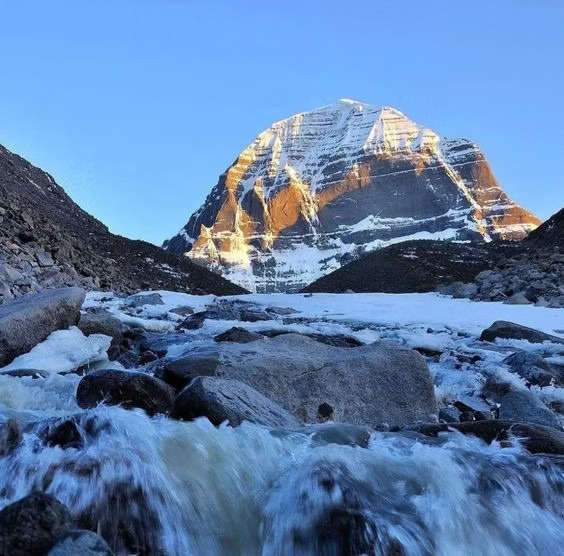
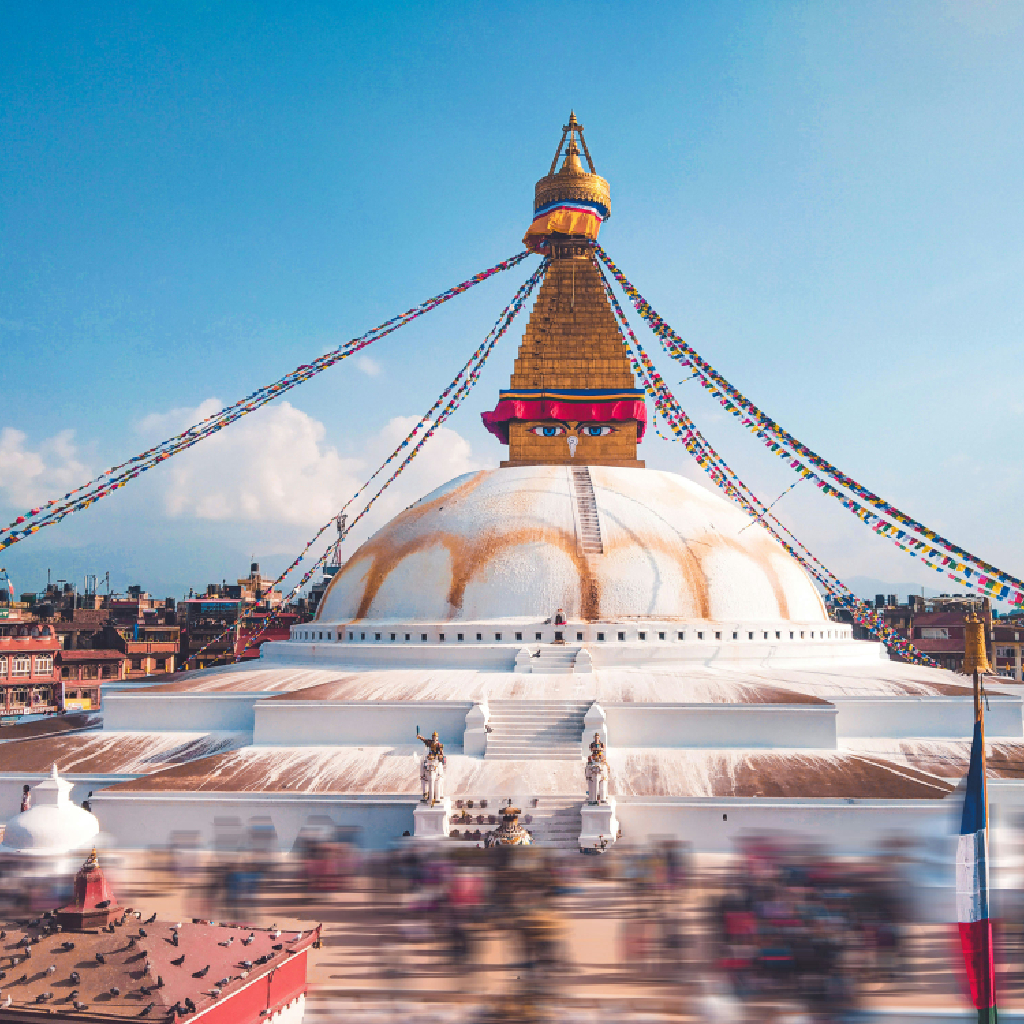
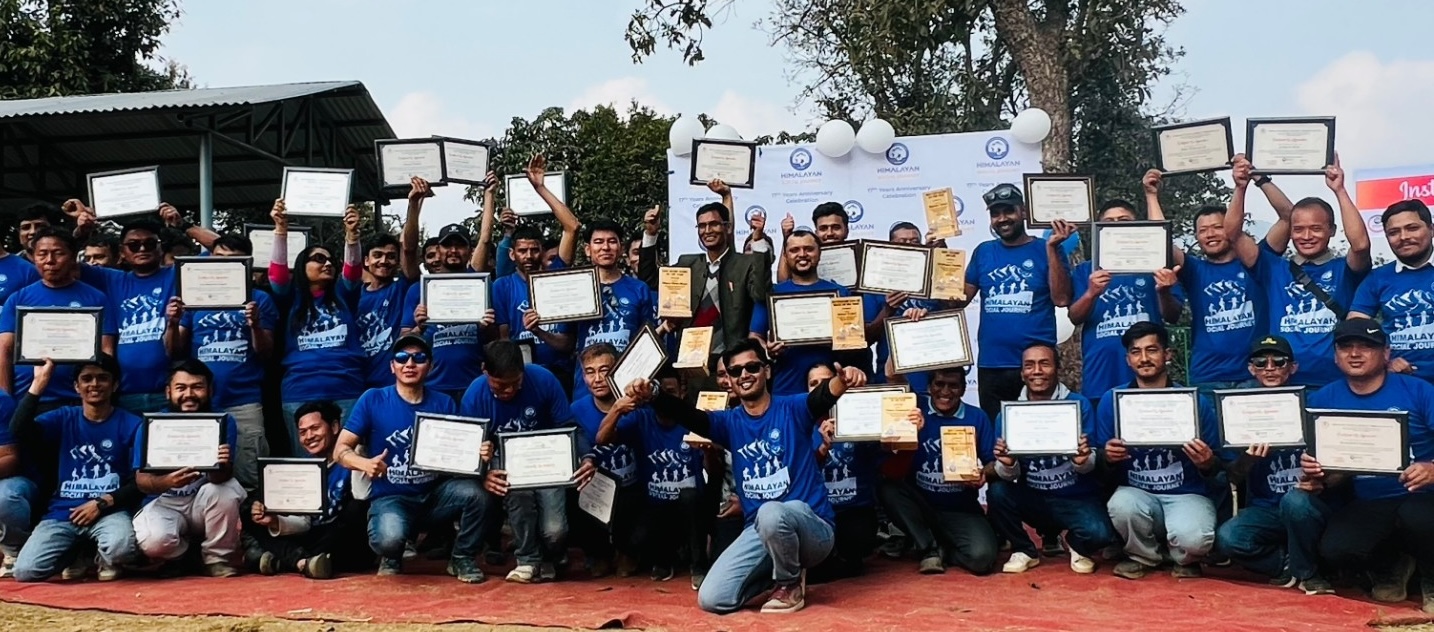
![Top 15 Travel Tips Before You Visit Nepal [ Updated 2022/2023 ]](https://hsj.com.np/uploads/0000/484/2022/09/19/blue-simple-minimalist-travel-tips-facebook-post-instagram-post-square-full.webp)
